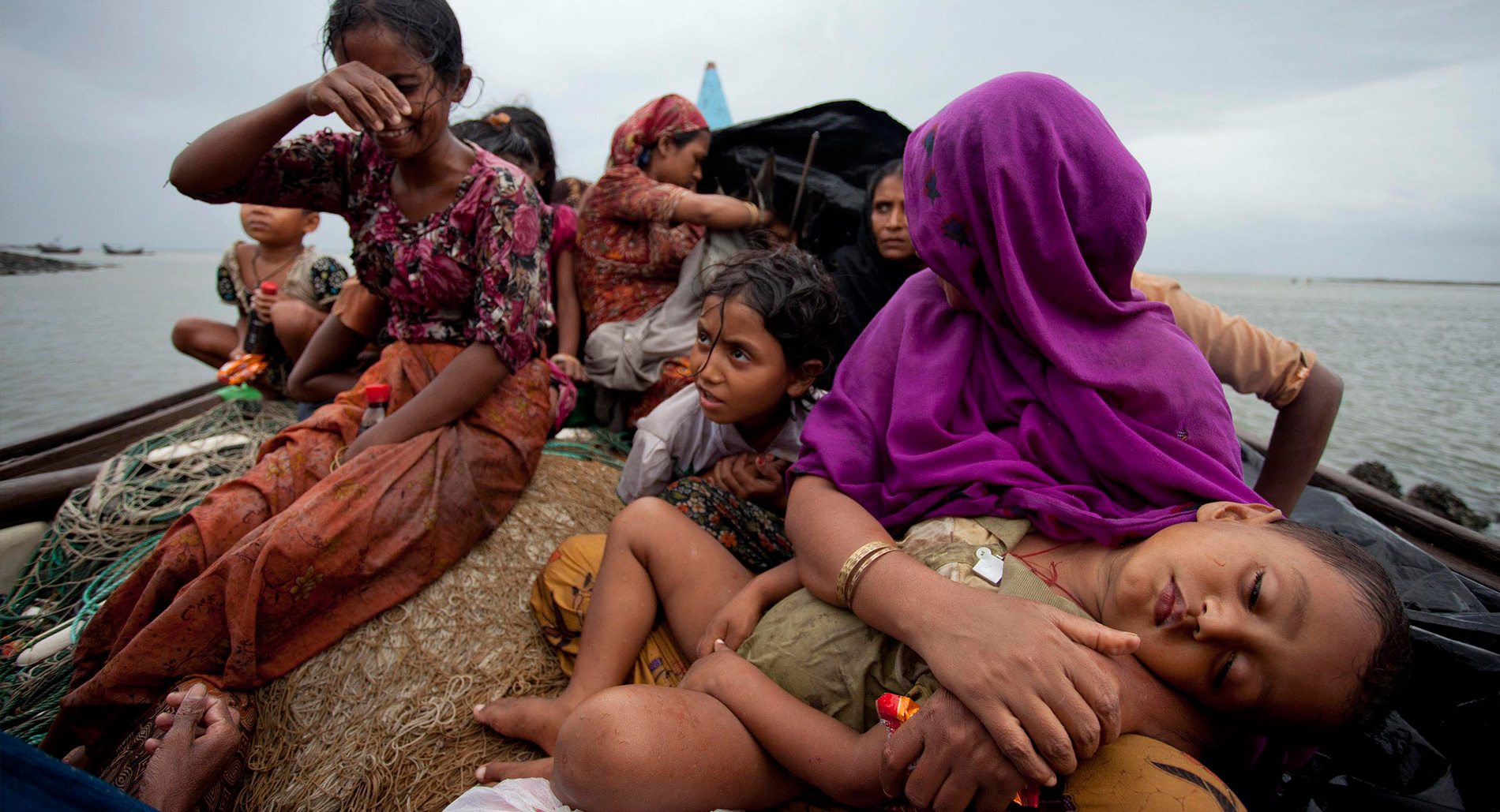Suu Kyi Breaks Silence On Rohingya In Speech High On Rhetoric And Low On Substance
GAYETI SINGH

NEW DELHI: Myanmar’s Aung San Suu Kyi has broken her silence on the Rohingya crisis, in her first public address since a military crackdown on the Muslim minority was branded as “ethnic cleansing” by the United Nations.
While the speech was high on rhetoric -- underscoring Myanmar’s commitment to human rights, religious diversity and democracy -- Suu Kyi barely acknowledged the military excesses that have prompted almost 400,000 Rohingyas to flee the country. Suu Kyi also spoke of the need for peace, outlining hate and fear as the cause of conflict, and adding that the two need to be removed for peace to prevail. There was, however, no concrete action put forth toward reconciliation in the Rakhine state.
Suu Kyi also referred to development in Rakhine, saying that all people have access to education and healthcare without discrimination. There was no mention of the fact that many Rohingyas have been displaced and live in makeshift camps -- where access to education and healthcare are limited. Journalists and officials who have visited Rakhine speak of the underdevelopment of the region, especially regarding the Rohingya minority who continue to be discriminated against across parameters.
Suu Kyi’s speech seemed to gloss over the crisis -- using rhetoric centred on human rights to do so. She pointed to the fact that the crisis in Rakhine is not Myanmar’s sole concern, as other serious problems, such as what’s happening in the west of the country, are equally important.
“I’m aware of the fact that the world’s attention is focused on the situation in Rakhine state. As a responsible member of the community of nations Myanmar does not fear international scrutiny… We too are concerned. We want to find out what the real problems are. There have been allegations and counter-allegations. We have to listen to all of them. We have to make sure those allegations are based on solid evidence before we take action,” Suu Kyi said, in a statement that doesn’t take into consideration the fact that Myanmar’s Rohingya population has declined by over 10 percent in just a few weeks, and by over 25 percent in the last 11 months.
Suu Kyi went on the defend the military, saying that security forces -- who have been accused of arson and indiscriminate killing -- have been instructed to exercise restraint and avoid “collateral damage.” No mention was made whatsoever of the report of grave human rights violations on the part of Myanmar’s security forces -- including reports that the borders have been lined with mines to target Rohingyas attempting to flee to Bangladesh.
This was Suu Kyi’s first public address since the Rohingya crisis escalated in August this year, and although she adopted a more reconciliatory tone filled with the right rhetoric, there was little in terms of substance. Suu Kyi, in a telephonic conversation with the Turkish President had said that “terrorists” were behind an “iceberg of misinformation” about the situation. Although her thirty minute televised speech spoke of “deep concern” about the suffering of people caught in the conflict and the “Muslims fleeing across the border to Bangladesh,” -- there was little substance to back up the rhetoric.
She said that Myanmar was ready “at any time” to take back the Rohingya who had fled to Bangladesh, subject to a “verification process.” Given that Myanmar doesn’t recognise the Rohingya as citizens, there’s a huge question mark on how many of those who had fled will qualify to return.
Additionally, Suu Kyi used the term ‘Rohingya’ only once -- referring to the persecuted group as Muslims throughout her speech. The sole reference to the Rohingya was when she spoke of the armed militant group -- the Arakan Rohingya Salvation Army.
In fact, Suu Kyi highlighted the fact that the violence in Rakhine had displaced many communities, of which Muslims were just one. She said that over 50 percent of Muslim villages in the region were intact, and urged authorities to examine why many had not fled. She added that it was “sad” that the international community was focusing on one amongst the country’s many problems.
The speech concluded with statements regarding Myanmar’s commitment to religious and ethnic diversity, with no mention of how the government was planning on resolving the current crisis and working toward reconciliation.
Suu Kyi’s speech was delivered in crisp English -- clearly meant to cater to an international audience in wake of growing condemnation against the violence in Rakhine. The substance, however, pandered well to Suu Kyi’s domestic base, using rhetoric to gloss over the reality of the crisis. About 400,000 Rohingya have been forced to flee, as a satellite analysis by Human Rights Watch shows that at least 210 of their villages have been burned to the ground since the offensive began on August 25. Myanmar’s military has been accused of rape, killing and village burning -- and Suu Kyi was careful not to refer to the accusations nor condemn the actions of the military.
Instead, Suu Kyi boasted that Muslims living in the violence torn area had access to education and health-care on equal footing -- a claim that has little bearing on reality.
The entire speech was indicative of the stunning reversal of Aung San Suu Kyi -- who has been celebrated as a champion of democracy and human rights, with a huge wave of international support complementing her party’s win in Myanmar and the end of military rule. The 1991 Nobel Peace Prize was awarded to her for her “nonviolent struggle for democracy and human rights.”
In reality, however, Suu Kyi fits neatly into the nationalist militarist Buddhist political paradigm in Myanmar -- one that is resolutely opposed to the Rohingya, and for whom human rights and democracy come with a caveat.



